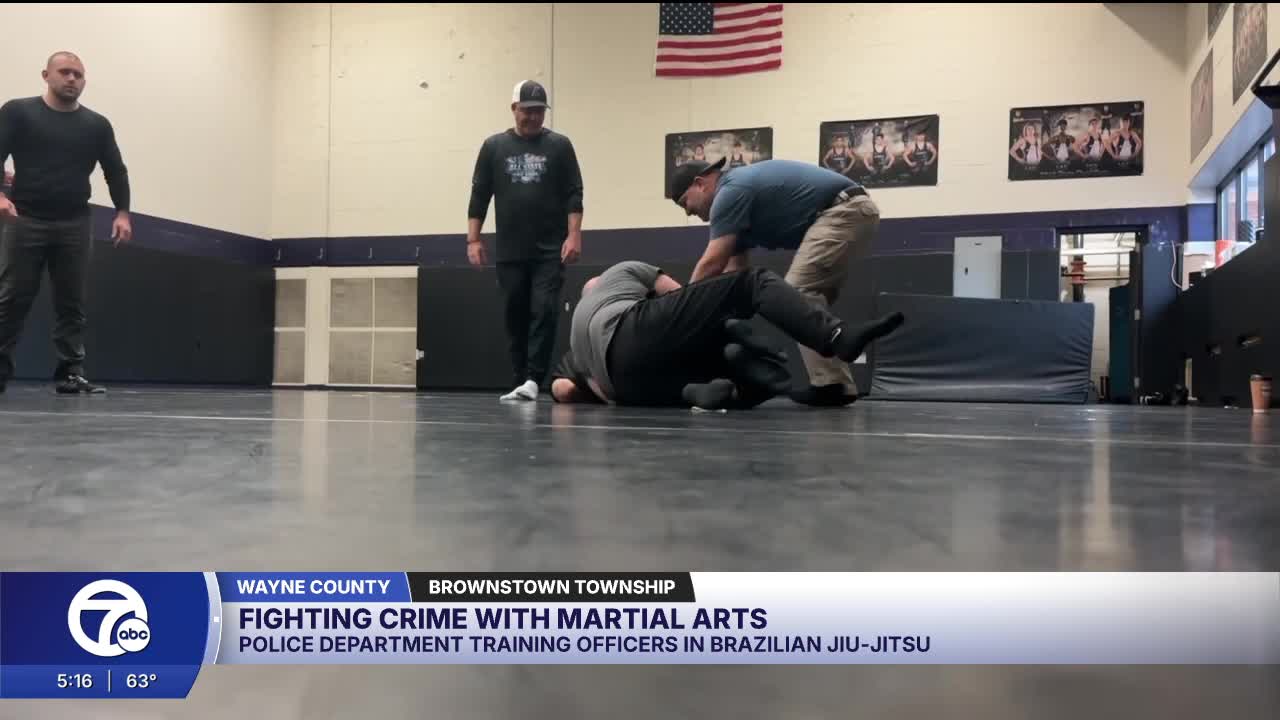BROWNSTOWN TOWNSHIP, Mich. (WXYZ) — A Downriver police department is rethinking the way officers are trained to handle physical confrontations, trading traditional tactics for something you'd more likely see in a martial arts gym.
Brownstown Township officers are now required to learn Brazilian jiu-jitsu, and it's a move becoming more popular among police departments nationwide. The training is taking place at Woodhaven High School, where many of these officers are seeing jiu-jitsu for the very first time.
Watch Carli Petrus' video report below:
This shift in police training is hitting the ground, literally. Brownstown Township police are now using aspects of Brazilian jiu-jitsu to help fight crime, starting to move away from more traditional tactics like pressure point control and pain compliance.
"It's working out very well," Chief Jeff Watson said.

Watson says it's an idea they've been discussing for a couple of years now.
"I'm always open-minded to new ideas. From my position, you have to have reasoning behind it and good research that supports implementing any type of defensive tactics program," Watson said.
That research came from one of their own, Detective Ian Morrison, who completed a 35-page report advocating for the use of martial art's in law enforcement.
"I mean, it works," Morrison said.

Morrison's report included real-world data from departments already ahead of the curve, like the Marietta Police Department in Georgia. In 2020, MPD reported 48% fewer officer injuries, 53% fewer suspect injuries and 33% less taser use after implementing jiu-jitsu training.
"The object with jiu-jitsu is that you're controlling them until you're able to control them, whether they give up or you're able to move their hands into handcuffing position," Morrison said.

Now, every sworn Brownstown police officer is required to attend ongoing jiu-jitsu training. Watson says it's already making a difference in the field.
"We make every effort to resolve the situation without use of force, but when we have to use force that it's very important for us to do that in a manner that provides a higher level of safety for the officer and the person that's being encountered," Watson said.

For some, it's a big change. For others, like Morrison, it's a natural next step toward smarter, safer policing.
"The more training that you have, the better. So, if something more efficient comes out or something that's going to be able to implement what you already have, that ultimately leads people to say let's use that thing, let's better ourselves, let's make ourselves one percent better every day," Morrison said.

From the mat to the street, Brownstown officers are training not to overpower, but to control.
—————
This story was reported on-air by a journalist and has been converted to this platform with the assistance of AI. Our editorial team verifies all reporting on all platforms for fairness and accuracy.




